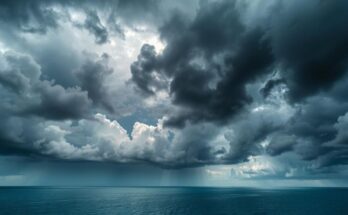In March 2025, an incident at South Africa’s Sanae IV Antarctic base highlighted the unique challenges and significance of scientific research on the continent. Researchers focus on climate change and space weather, utilising Antarctica’s isolated environment for critical findings. Collaboration among about 30 countries aids in overcoming logistical challenges of the harsh conditions. Key discoveries include the ozone hole and ice core climate records, vital for understanding past and future climate responses.
In March 2025, an incident at South Africa’s Sanae IV base in Antarctica led to significant media attention when a researcher accused a team member of violent behavior. To gain insight, The Conversation Africa consulted geomorphologist David William Hedding, who has extensive experience conducting research in Antarctica, regarding the nature of the work performed, the harsh conditions faced, and the importance of these endeavors.
Researchers in Antarctica primarily focus on climate change, leveraging the continent’s sensitivity to global environmental shifts. The unique ecosystem offers scientists the opportunity to study natural processes in a relatively untouched environment. Additionally, the location facilitates research on phenomena such as space weather that may not be as effectively studied elsewhere, particularly due to the potential implications on technology and human health.
Currently, approximately 30 countries operate research stations in Antarctica, contributing to a broader, collaborative scientific community. The South African station, SANAE IV, accommodates 10 to 12 researchers, positioned on a nunatak in Western Dronning Maud Land, roughly 220 km inland. Researchers typically remain at the base for 15 months, enduring the extreme cold and prolonged winter darkness.
The discovery of the ozone hole in 1985 by researchers from the British Antarctic Survey marked a pivotal achievement in Antarctic science, leading to the Montreal Protocol’s implementation, which aimed to reduce substances harmful to the ozone layer. Additionally, studying ice cores has provided crucial data about past climatic conditions over the last 1.2 million years, informing predictions of future climate responses amidst human-induced changes.
Conducting research in the Antarctic is fraught with challenges, including the remote locations of study sites, harsh cold, and continuous daylight during the austral summer. The remoteness complicates access, requiring significant logistical planning to collect samples. Researchers often work in the field for extended periods, facing severe conditions, with many scientific activities limited to the more temperate austral summer months.
Scientific investigation in Antarctica is essential due to the continent’s influence on global systems. Melting land-based ice caused by climate change is directly linked to rising sea levels and disruptions in ocean currents, which can profoundly affect marine ecosystems and human societies. Understanding these mechanisms is vital for fostering resilience and adaptation strategies in the face of global environmental shifts.
The research being conducted in Antarctica is crucial for understanding and mitigating the impacts of climate change. The continent’s unique environment serves as an important barometer for global climate health, with significant discoveries contributing to international environmental protocols. Despite extreme conditions and logistical challenges, scientists continue to unravel important climatic history and predict future patterns. These efforts are vital for global society’s adaptation to impending climate-related threats.
Original Source: allafrica.com




